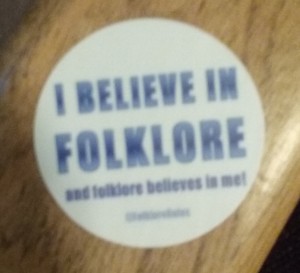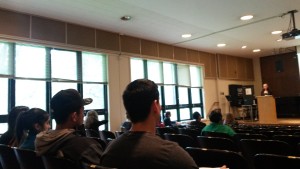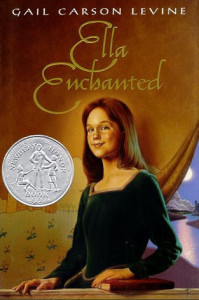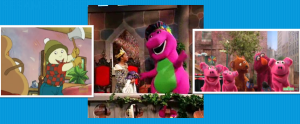
On the final day of the Western States Folklore Society conference, while waiting for Dr Rudy’s presentation to begin, I had a brief conversation with Dr. Tok Thompson of the University of Southern California. After introducing myself and answering affirmatively that this was my first time at a conference, he said “Oh, be careful, they’re addicting. Once you go to one you never want to stop going to them.”
It seems like a strange concept. How can listening to presentations be addicting? How is it different from a normal class?

However, by the end of the conference, I easily understood what he meant. The conference lasted only two days, but I felt that for the whole time my brain was working at top speed. It was exhilarating!
It took a deep level of engagement just to understand what was being said: these scholars are highly intelligent and use great big words to express complicated ideas. Once my brain was engaged enough to understand, I found myself thinking about EVERYTHING more deeply, and making more interesting connections all the while. I had no idea that intelligent and academic thought processes were contagious!
I was glad that the environment of the conference helped me feel smarter, because this was my first time experiencing anything like this in the academic world outside of BYU, so I started out a little intimidated.

I was hired on to this research project in January. I am an undergrad in English with a Communications minor, and in all of my various interviews with English professors over my degree so far, they advised me to go talk to Professor Rudy because of my background in fairy tale research, which is her focus. My scholarly interest in fairy tales originated with a major research project in high school for my International Baccalaureate diploma. I researched and then wrote my extended essay about masculinity in fairy tales. I have always been interested in and loved fairy tales and especially their retellings, but it wasn’t until this essay I realized that they were something I could study in an academic sense. I was thrilled to be given the opportunity in a university setting to continue researching in this field.
I had background information in fairy tale research, but I knew little to nothing about what the wider field of folklore is or what makes something a folklore subject when leaving for the conference. However, I could make much more sense of it by the end of the conference, and figuring it out during was sort of fun, like putting together a puzzle.
I learned that folklore is not just the study of folktale narratives. Folklore is about the things that warrant study but aren’t written down or recorded in a conventional way (until the fieldwork folklorists come by, that is). It’s a study of parts of culture that circulate without being formalized in the way literature is published or music is commercialized. Proverbs and riddles, legends, games, songs, festival, food, and material culture are all types of folklore and I learned a lot about each of these elements in various panels I attended and conversations I had outside of formal panels.
Folklore is about the stuff that groups of people share, and I learned that conferences are just as much about sharing and community as they are about presentations and papers. The conference was a place where scholars come to be with ‘their people’ who spoke their language and cared about the things they cared about. Being welcomed into this community and finding the ways I could fit into it was the most fun part of this conference.
In short, the Western States Folklore Society Meeting was quite the epic adventure.

Watch out for the blog version of the research I presented at the conference in the coming months: A Data Analysis of Gender, Age, and Other Patterns in Fairy Tale Mash-Up Episodes of Children’s Television Shows!
Leave a comment